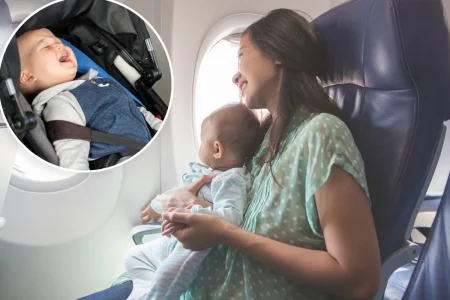Family Dynamics: Navigating Wedding Invitations and Second Chances
In the realm of family relationships, few situations are as complex as those involving weddings and remarriages. Two recent letters to Dear Abby highlight the emotional challenges that arise when family members must balance personal choices with family expectations. In both cases, we see how the past influences present relationships, and how difficult it can be to navigate the shifting dynamics of blended and extended families.
The first situation involves a mother caught in the middle of her son’s wedding plans and her late father’s second wife. After nearly 40 years as part of the family, Bonnie – the stepmother – has been excluded from the upcoming wedding reception. While the son has no particular animosity toward Bonnie, her history of mental health issues has created tension within the family. More significantly, she has made no effort to welcome his fiancée, giving him little motivation to include her in their intimate celebration. The mother, however, feels torn by her sense of obligation to Bonnie, who has no other family and has been included in family gatherings even after the father’s death. The delicate situation is complicated by Bonnie’s sensitivity and likelihood of being deeply hurt when she discovers she’s not invited. The mother’s dilemma reflects the challenge many families face when balancing past relationships with new beginnings, especially when those relationships have been complicated by behavioral issues or emotional difficulties.
Dear Abby’s advice to the mother is straightforward: step back and let the couple make their own decisions about their wedding guest list. This wedding belongs to the son and his fiancée, not to the mother, and not to extended family members with tenuous connections to the couple. While the mother’s compassion for Bonnie is admirable, her son’s wedding day should reflect his current relationships rather than family obligations from the past. When Bonnie eventually learns about her exclusion, the mother can simply explain that the reception was small and selective. If Bonnie takes issue with this, she should address her concerns directly with the son rather than putting the mother in the position of mediator. This approach acknowledges the couple’s autonomy while providing a respectful way to handle potential hurt feelings.
The second letter presents an even more troubling family dynamic – one in which adult children have completely cut off their mother after she remarried. Two years after being widowed (following a 45-year marriage), the mother met a new man through a dating site arranged by her daughter. After connecting with this man, she made the decision to marry him. Surprisingly, both her son and daughter responded by completely cutting contact, despite living just three miles away. They’ve never met their mother’s new husband and went so far as to contact her lawyer to try to prevent the marriage. The mother expresses deep sadness at this rejection, noting that she had always been supportive of her children throughout their lives. She acknowledges that her first marriage had difficult times, but emphasizes that her new husband truly loves her, and she loves him. Now she wonders how to reconnect with her children and introduce them to her new spouse.
The mother’s situation reveals a painful reality that many seniors face when they seek companionship after losing a spouse. Adult children sometimes struggle to accept their parents as autonomous individuals with ongoing emotional and romantic needs. The resistance may stem from complicated feelings about loyalty to the deceased parent, concerns about inheritance, or simply difficulty adjusting to change. The children’s extreme reaction – contacting a lawyer and completely cutting contact – suggests deeper issues that may require professional intervention to resolve. Dear Abby wisely recommends that the mother seek guidance from a marriage and family therapist before attempting to reconnect with her children. Additionally, she suggests consulting with a legal advisor to protect herself from potential financial exploitation, noting that when adult children try to prevent a parent’s remarriage, inheritance concerns may be a motivating factor.
Both situations illustrate the complex interplay between family obligation, personal autonomy, and emotional history that characterizes so many family relationships. The mother of the groom feels pulled between her son’s wishes and her sense of responsibility toward a long-time family member. The widow faces outright rejection from her children for pursuing her own happiness after a decade of being alone. In both cases, the women are caught in transitions where the boundaries of family inclusion are being redrawn, forcing them to navigate between past commitments and present realities.
The wisdom in Dear Abby’s responses lies in her recognition that healthy relationships require clear boundaries and respect for individual choices. For the mother of the groom, this means accepting her son’s decision about his own wedding guest list, even if it causes temporary discomfort with Bonnie. For the widow, it means seeking professional guidance to address the unreasonable rejection by her children while protecting her new relationship and her assets. Both women are reminded that while family connections are important, they shouldn’t come at the expense of personal well-being or autonomy. The path forward for both requires courage to set appropriate boundaries while remaining open to reconciliation when possible.
These stories remind us that family relationships are never static. They evolve throughout our lives as circumstances change, new members join, and older generations pass away. Navigating these transitions with grace requires flexibility, clear communication, and sometimes the willingness to seek outside help when family dynamics become too entangled to resolve on our own. Most importantly, they remind us that at any age, we deserve to make choices that support our own happiness and well-being, even when those choices aren’t immediately understood or accepted by the people we love.














